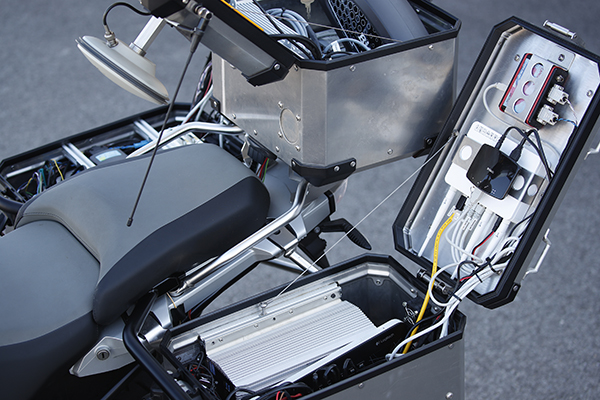Autonomous motorcycle tech will benefit V2V
BMW has presented its first autonomous motorcycle technology demonstrator at its Miramas testing ground 2018 Techday in southern France.
Developed by a team led by graduate engineer Stefan Hans, a R 1200 GS was shown to be able to independently drive off, accelerate, circle a winding test track and independently slow down safely to a stop.
The company says that “the underlying technology should serve as a platform for development of future systems and functions to make motorcycling even safer, more comfortable and increase the riding pleasure.
“The aim of the prototype is to gather additional knowledge with regard to driving dynamics in order to detect dangerous situations early on and thus support the driver with appropriate safety systems while turning at intersections or when braking suddenly”.
Other technology projects demonstrated included cornering lights, laser headlights and a motorcycle frame manufactured completely using a 3D printing process - including the rear swinging arm. BMW Motorrad is able to leverage synergies from R&D work done by the automotive division where 3D printed parts production has already made its way into series production for various vehicles. BMW says “the advantage of 3D printing lies in the complete freedom to design components that could not be produced in other ways.
“The innovative processes used in the production of motorcycle chassis components, such as frame, swinging arm and wheels, use lightweight, high-strength carbon - already industrially manufactured in the BMW HP4 RACE”.
BMW believes that the rapid pace of digitisation will change the future of motorcycling. “BMW Motorrad is taking two-wheeler needs into consideration for tomorrow's world of transport and preparing for it technically. Above all, V2V communication between vehicles is in the foreground, further enhancing safety and comfort for the motorcyclist through digital networking”.


